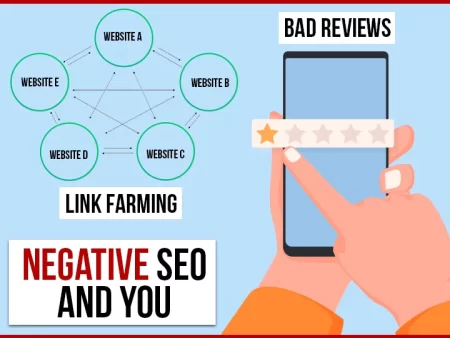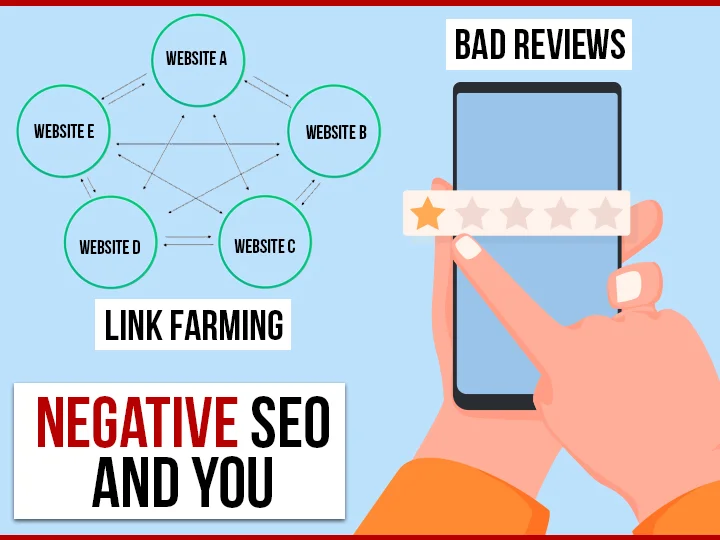 When a website owner devises a plan to target their competition, decreasing their rankings, negative SEO takes place. This is intentionally done and has the possibility to wreak havoc on what other website owners have worked so hard to complete.
When a website owner devises a plan to target their competition, decreasing their rankings, negative SEO takes place. This is intentionally done and has the possibility to wreak havoc on what other website owners have worked so hard to complete.
Google will penalize those that are found to be doing negative SEO. This is why many companies refrain from doing what is also known as “blackhat” SEO. Website owners are realizing that it is best to use organic or white hat SEO.
Negative SEO has taken place for many years. In the beginning, it consisted of website owners taking their competition links and placing them on destructive websites. Google sees this as being spam, which will hurt the website.
Fast forward many years and we are still seeing this kind of SEO. It is now more difficult to determine if someone has done this on your website. However, knowing what to look for can help.
There are two types of negative search engine optimization. Off-page SEO uses strategies such as link farming that produce bad backlinks that point back to the website. Onpage SEO involves changing factors directly on your website. An example of this is Intentional DDoS Attacks.
Let’s take a closer look at some of the techniques hackers are using for negative SEO.
- Link Farming
With link farming, hyperlinks are provided to help give your website a boost. Many view this as a gray hat SEO technique. This used to be a great way to rank higher on the search engine results page, but in 2012, Google said enough. With the help of the Google algorithm, website owners began to receive penalties that were quite severe.
It is a good idea to do regular reviews on your website to check for these spammy backlinks. If you find toxic links, add them to the disavow list. You can check for this using the SEMRush tool.
- Bad Reviews
No one likes a bad review, so this is naturally one of the best ways that your competition can break you. Website owners have been known to hire individuals to write reviews about services and products received from your website. These reviews will lie about your brand, making your company look bad.
Bad reviews will have a negative impact on you as Google will be watching. Google will see that many have not had good luck with you, so your ratings will be affected. And when customers see negative reviews, they often steer clear of your company.
The good thing is you can fix this by looking at all the reviews and flagging the fake ones. You will then need to fill out a form, and Google will remove them for you.
- Scraping Content
Scraping content occurs when someone copies website content and uses it on another site. In this blackhat technique, your competition will copy blogs, information, articles, posts, and other content from your site and paste it onto many other websites. With the Panda algorithm, this is no longer allowed.
You can look for copied content simply by using specific tools. Copyscape will find other pages that have the same content as yours. Once you see this, contact the website owner and ask to have it removed. If they refuse, you should contact Google and fill out a copyright infringement form.
- Making changes in Content or Code
Hackers must be extremely skilled to make changes in your content or code. They will need access to the backend of your site. Once they are on your site, they can change the code so the website looks one way to you and completely different to your visitors.
Be certain that your is up to date and that you are doing SEO audit checks on a regular basis.
- Intentional DDoS Attacks
In this technique, a grand amount of traffic is sent by a hacker to your website. Your server will then be affected, which will give your users a negative experience.
You should look after your website speed to make certain it is up to speed. You may also check your server logs.
If your practice needs assistance in dealing with negative SEO, be sure to reach out to Affordable Dental SEO in Pinellas County, FL.

